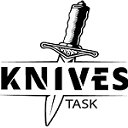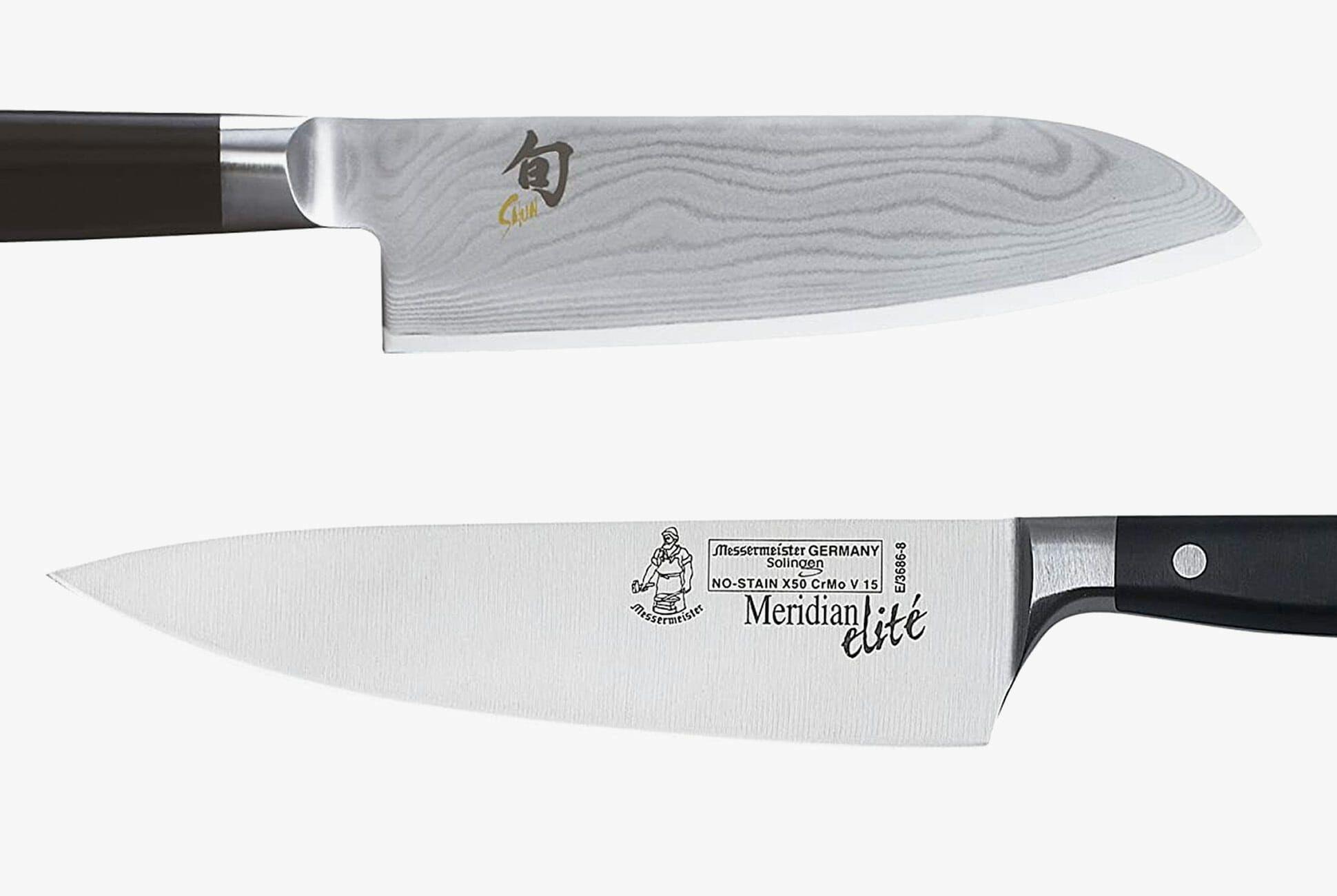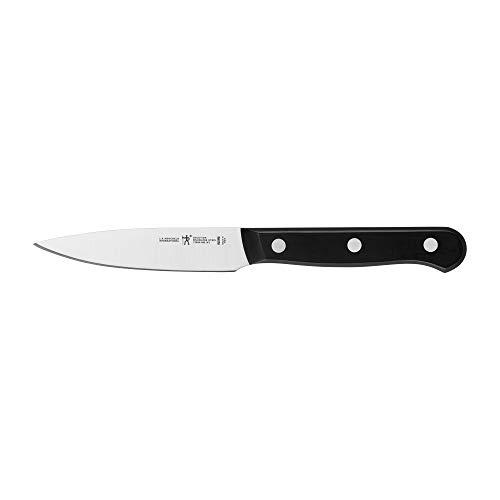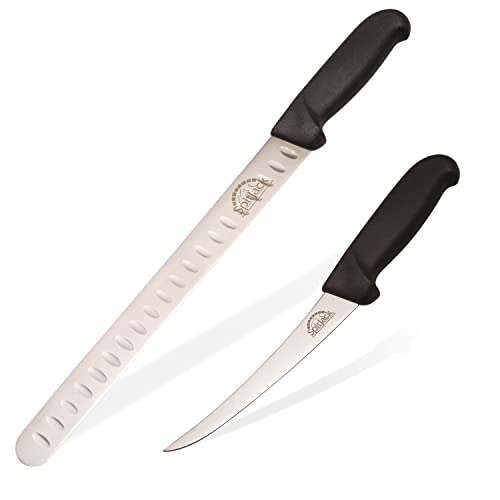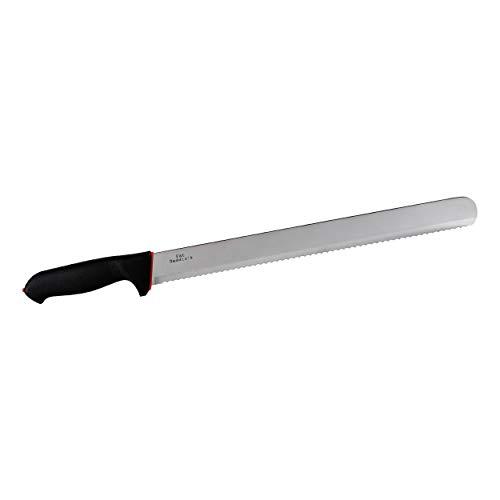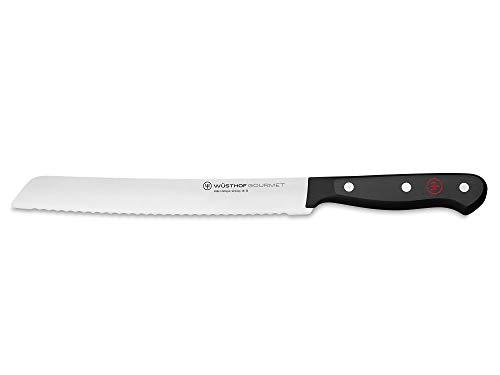This is a difficult question to answer definitively because it depends on what you are looking for in a knife. Generally speaking, Japanese knives are going to be thinner and sharper than German knives. They are also usually made of harder steel, which means they will stay sharp longer.
However, German knives tend to be more durable overall and have a more comfortable grip. So, it really depends on your individual needs and preferences as to which type of knife is better for you.
If you’re a professional chef, then you know that having a good quality knife is important. But what kind of knife should you get? Japanese or German?
It really depends on what you’re looking for in a knife. If you want a sharp blade, then Japanese knives are probably your best bet. They’re made with very hard steel, so they can take and hold a sharp edge.
They’re also usually lighter than German knives, which can be nice if you have to do a lot of chopping.
On the other hand, if you want a durable knife that’s going to last for years, then German knives are probably your best choice. They’re made with softer steel, so they won’t chip as easily as Japanese knives.
And they’re often heavier, which can make them easier to use for tough jobs like chopping through bones.
So, which is better? It really depends on what your priorities are.
If you want a sharp blade, go with Japanese; if you want durability, go with German.
The Difference Between German or Japanese Chef Knives | The Euge Food | This or That
Why are Japanese Knives the Best?
Japanese knives are often lauded as being the best in the world, and for good reason. Here are some of the reasons why Japanese knives are so highly regarded:
1. They’re incredibly sharp.
Japanese knives are known for their incredibly sharp blades, which can make short work of any cutting task.
2. They’re well-made. Japanese knives are made with high-quality materials and construction, meaning they’ll last longer and perform better than cheaper options.
3. They’re versatile. Whether you need a slicing knife, a paring knife or a chef’s knife, there’s likely a Japanese option that will suit your needs perfectly.
4. They look great.
Not only do Japanese knives perform well, but they also look beautiful, making them a great addition to any kitchen.
If you’re in the market for a new knife (or set of knives), then considering a Japanese option is definitely worth your while – you won’t be disappointed!
What Country Makes the Best Knives in the World?
There are many countries that make great knives, but it is hard to say which one makes the best. Each country has its own unique style and method of making knives, so it really depends on what you are looking for in a knife. Some of the countries that make great knives include Japan, Germany, and the United States.
Japan is known for its high quality sushi knives. These knives are made with a very thin blade that can easily slice through fish. They are also very sharp, making them perfect for slicing vegetables as well.
Japanese chefs take a lot of pride in their sushi knives and they are considered to be some of the best in the world.
Germany is another country that makes great knives. German knives are known for being extremely durable and long lasting.
They are often used by professional chefs because of their quality construction. Many people believe that German knives are the best type of knife for everyday use since they can withstand a lot of wear and tear.
The United States is also home to some incredible knife makers.
American-made knives are often times more affordable than those made in other countries, but they can still be just as high quality. Brands like Buck Knives and Kershaw have been making American-made blades for years and they have a reputation for being tough and reliable.
Are Japanese Knives the Best in the World?
No definitive answer exists to this question as it is subjective. However, Japanese knives are widely considered to be some of the best in the world by many people in the culinary industry. This is due to a number of factors such as the quality of the steel used, the precision with which they are made, and the fact that they are often hand-forged.
Japanese knives also tend to be lighter and sharper than their Western counterparts, making them easier to handle and more effective for slicing and chopping.
Which is the Best Knife in the World?
There really is no definitive answer to this question as it depends on personal preferences. However, we can narrow it down to a few knives that are widely considered to be the best in the world.
First up is the Japanese Gyuto knife.
This type of knife is typically used for sushi and sashimi, but can also be used for general purpose cooking tasks like chopping and slicing. It’s renowned for its sharpness and precision, making it a favourite amongst professional chefs.
Next is the German chef’s knife, which is a versatile all-purpose knife that’s perfect for both home cooks and professionals alike.
It’s often described as the “workhorse” of the kitchen due to its versatility.
Finally, we have the Swiss Army Knife. This handy tool is actually a multi-tool that comes with a variety of different blades and tools, making it perfect for any situation where you might need a knife (or two).
Plus, it looks pretty cool too!

Credit: prudentreviews.com
Best German Knives 2022
In the market for a new German knife? Here are some of the best options for 2022!
Wusthof Classic Ikon: This knife is precision forged from a single piece of high-carbon stainless steel.
The full tang provides superior balance and strength, while the triple riveted handle ensures durability. With its classic style, this knife will never go out of fashion.
Zwilling J.A. Henckels Twin Profection: Another great option from a trusted name in German knives, Zwilling J.A. Henckels’ Twin Profection line features blades that are laser-cut and ice-hardened for lasting sharpness.
The handles are ergonomically designed for comfort and balance, making this knife a pleasure to use.
Victorinox Fibrox Pro: A more budget-friendly option, this Swiss-made knife is still built to last with its high-quality stainless steel blade and comfortable Fibrox handle. It’s perfect for those who want a reliable German knife without breaking the bank.
Best German Knife
Germany is renowned for its high-quality knives, and the best German knife is no exception. This knife is made with a high carbon stainless steel blade that is extremely sharp and durable. The handle is comfortable to hold and provides a good grip, even when wet.
This knife is perfect for slicing meat, vegetables, bread, and fruit. It can also be used for chopping nuts and herbs. The best German knife is dishwasher safe and comes with a lifetime warranty.
Japanese Vs German Knives Reddit
If you’re looking for a quality knife, you may be wondering whether to choose a Japanese or German blade. Both types of knives have their fans, but which is right for you? Here’s a look at the pros and cons of each type of knife to help you make your decision:
Japanese Knives
Pros: Japanese knives are known for their sharpness and durability. They’re also usually lighter than German knives, making them easier to handle.
Cons: Japanese knives can be more expensive than German ones, and they may require more care (such as regular honing) to keep them in top condition. Additionally, some people find that Japanese blades can feel too delicate for tough tasks like chopping meat or bones.
German Knives
Pros: German knives are typically less expensive than their Japanese counterparts and they’re often heavier, making them better suited for tougher jobs. They’re also less likely to chip or break than Japanese knives. Additionally, many people find that German knives are more comfortable to hold since they have a fuller grip.
Cons: Some people find that German knives can feel too bulky and unwieldy. They’re also not always as sharp as Japanese blades right out of the box (though they can be easily sharpened).
Wusthof Vs Japanese Knives
It is often said that the best chefs in the world use Japanese knives. There is a good reason for this, as Japanese knives are some of the sharpest and most durable on the market. However, they are also quite expensive.
For those who cannot afford to spend hundreds of dollars on a knife, there are still some excellent options available from other brands, such as Wusthof. So, which is better? Let’s take a closer look at both types of knives to see which one comes out on top.
When it comes to sharpness, Japanese knives definitely have the edge (pun intended). They are made with harder steel than German knives, which means they can be honed to a much sharper edge. This makes them ideal for precision cutting, such as slicing sushi or other delicate foods.
Japanese knives also tend to hold their edge longer than German knives before needing to be sharpened again.
However, German knives have a few advantages of their own. Firstly, they are usually cheaper than comparable Japanese models.
Secondly, they tend to be more comfortable to hold and use for extended periods of time due to their ergonomic design. And finally, while they may not be quite as sharp as Japanese knives right out of the box, they are easier to sharpen at home without specialized equipment or training.
Best Japanese Knives
Japanese knives are some of the best in the world. They’re made with high-quality materials and craftsmanship, and they can really take a beating. In fact, many professional chefs prefer Japanese knives over any other type.
There are a few things that make Japanese knives so special. First, the steel used to make them is extremely hard, which means it holds an edge well and is less likely to chip or break. Second, the blades are usually thinner than Western knives, which makes them great for precision cutting.
And lastly, Japanese knife handles are often shorter than their Western counterparts, which gives you more control over your cuts.
If you’re in the market for a new set of kitchen knives, definitely consider giving Japanese knives a try. You won’t be disappointed!
German Vs Japanese Steel
It is often said that German steel is the best in the world. But what about Japanese steel? Is it really that much worse?
To answer this question, we first have to understand how each country produces its steel. In Germany, most of the steel production takes place in the Ruhr region. The raw materials for German steel are imported from other countries, including Japan.
The Japanese steel industry is mostly located in Kobe and Nagoya.
The main difference between German and Japanese steel production is the process used to produce the steel. In Germany, the basic oxygen furnace (BOF) method is used.
This involves blowing oxygen into molten iron to remove impurities. In Japan, most of the steel production uses the electric arc furnace (EAF) method. This involves melting scrap metal using electricity and then adding new metals to create desired alloys.
So, which method is better? It depends on who you ask. Some people argue that BOF is better because it results in a higher quality product with less environmental impact.
Others argue that EAF is better because it uses less energy and creates less pollution. Ultimately, it comes down to personal preference.
Japanese Chef Knife
Japanese Chef Knife
A Japanese chef knife is a versatile and essential tool for any kitchen. It can be used for slicing, dicing, and mincing vegetables, as well as proteins like fish, chicken, and beef.
A good quality Japanese chef knife will have a sharp blade that is easy to control, making it a great choice for both novice and experienced cooks alike.
When choosing a Japanese chef knife, it is important to consider the size of the blade. A smaller blade may be more maneuverable and easier to control, while a larger blade will provide more power when cutting through tougher ingredients.
It is also important to choose a comfortable handle that will fit your hand nicely. Many Japanese chef knives come with wooden handles that are stained or varnished for added durability.
If you take care of your Japanese chef knife properly, it can last for many years with proper maintenance.
Always use a sharpening stone or rod to keep the blade in good condition and avoid using it on hard surfaces like ceramic plates or countertops which can damage the edge. When not in use, store your knife in a safe place where it won’t get damaged or become dull from exposure to moisture or oxygen in the air. With proper care, your Japanese chef knife will be an indispensable tool in your kitchen for years to come!
Best German Chef Knives
There are a few things to consider when purchasing a German chef knife. First, the blade. German knives are known for their high-quality blades, so you’ll want to make sure the blade is made of high-carbon stainless steel.
Second, the handle. German chef knives typically have ergonomic handles that provide a comfortable grip. Finally, the price.
German chef knives can be expensive, but they’re worth the investment if you’re looking for a high-quality knife.
When it comes to German chef knives, there are a few brands that stand out from the rest. Wüsthof and Zwilling J.A. Henckels are two of the most popular brands among professional chefs.
Both companies make high-quality knives that will last a lifetime with proper care. If you’re looking for a less expensive option, Victorinox is a good choice.
Conclusion
When it comes to kitchen knives, there is a lot of debate over which country makes the best blades. Some people swear by German knives while others prefer Japanese options. So, which type of knife is actually better?
It really depends on what you are looking for in a knife. If you want a blade that is very sharp and can handle precision cutting, then a Japanese knife is probably your best bet. However, if you are looking for a sturdier knife that can handle more tough cutting jobs, then a German knife would be the way to go.
Ultimately, it really comes down to personal preference and what type of cooking you will be doing most often with your new kitchen knives.
